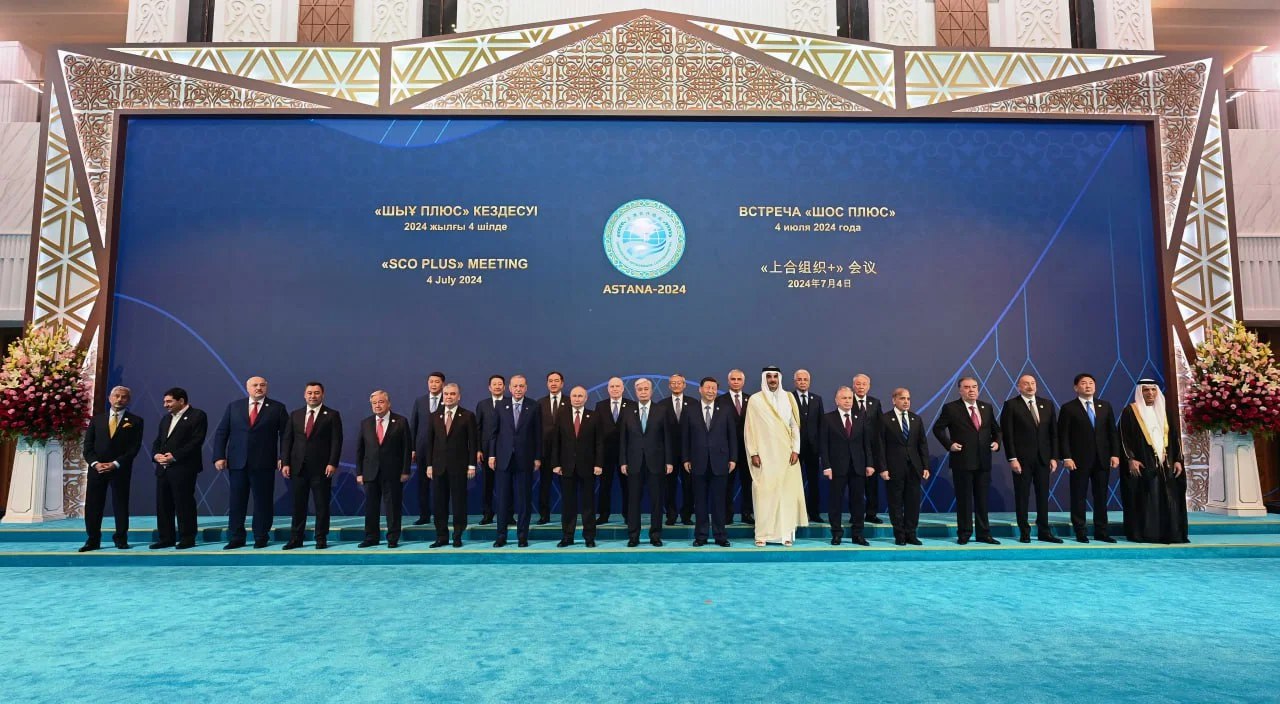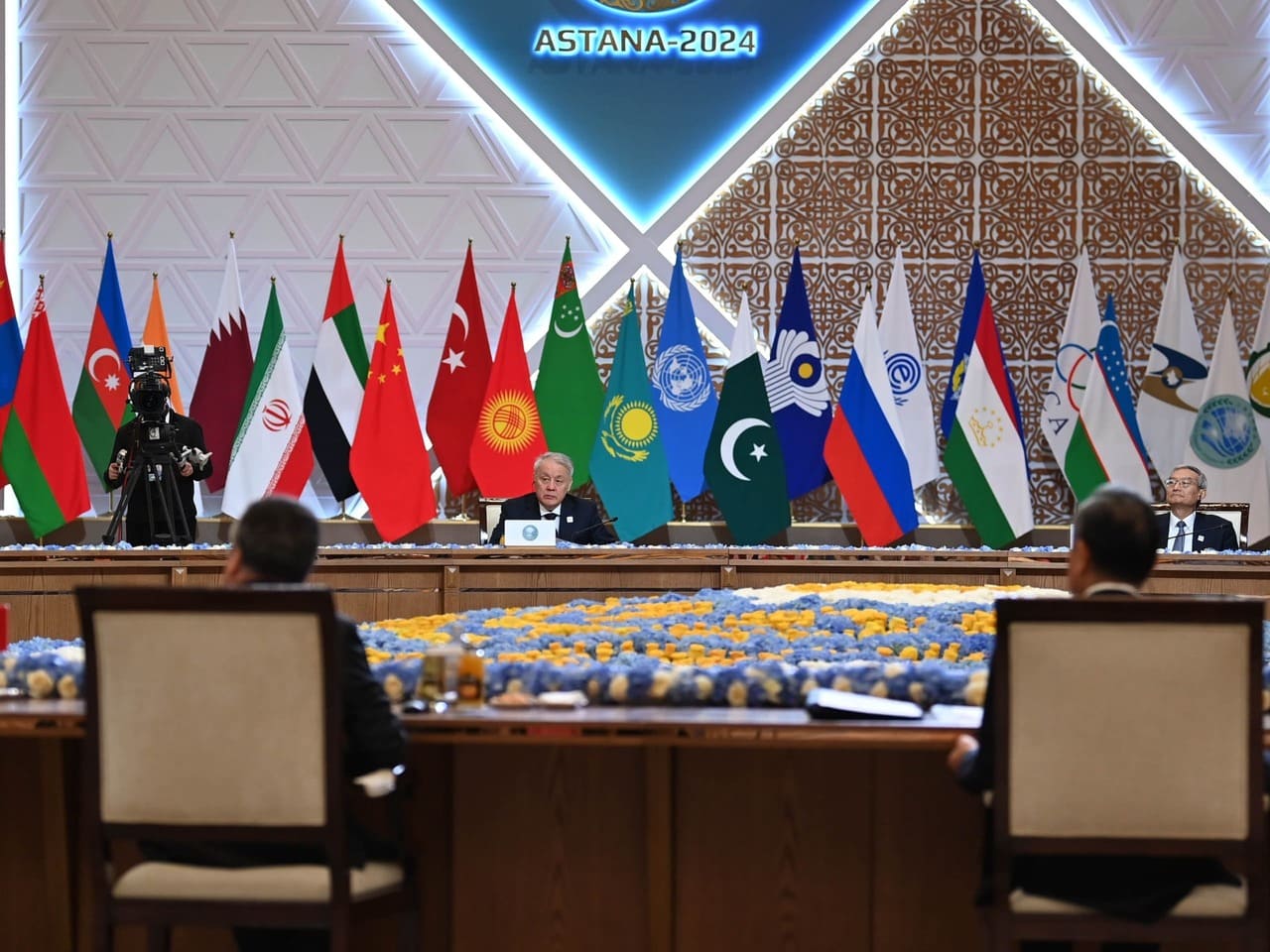Before the SCO Summit in Astana that took place from 3 to 4 July 2024, expectations and ambitions were high about the further integration of the regional organization. Some of these expectations were realized, such as the addition of Belarus to SCO, whilst others, such as the further cooperation on security are currently under negotiation, with the Eurasian security clubbeing discussed between Presidents Xi and Putin.
However, one topic, even though receiving attention during the summit, has not yet been resolved and there has not been any clear stance amongst most members of the SCO. This topic is the stance over the Taliban regime, the status of recognition and the pursuit of cooperation with Afghanistan. It presents, thus, great interest to conduct a stakeholder map across the SCO and examine what is the potential for full-scale recognition of the Taliban regime in the SCO.

Full Engagement: A bloc of One
The first group of actors includes the countries that have given full recognition status to the Taliban regime. They consider it to be the legitimate government of the country(incl. Acceptance of participation in all international organizations) and engage in collaboration with it on all sectors. So far, China is the only member of this group. Beijing has, in many cases, highlighted the importance of boosting security cooperation with Afghanistan and, recently, has urged SCO members and international organizations to enhance collaboration with the “interim government” for peace and security. Security is at the top of the agenda for Beijing, as part of the Wakhan Corridor is located in Afghanistan.
This is a vulnerable point for China, as it the Islamic State - Khoresan Province (ISKP), but especially the East Turkestan Islamic Movement (ETIM) have strong presencein Afghanistan and they can pose a serious security threat. However, this urge by Chinese authorities stems not only from security concerns, but also of economic interests. Chinese companies have announced numerous investments in Afghanistan the past years, including a $450 million deal for oil exploration, part of a $6.5 billion deal on mining, including critical raw materials, half a billion dollars on solar projects and$540 million on interconnectivity.
Cautious Engagement: Economy & Security
The second group includes countries that have endorsed engagement with the Taliban regime, on different grounds, but without fully recognizing the Taliban regime. Uzbekistan, Kazakhstan, Turkmenistan and Russia have so far led these efforts. Turkmenistan and Uzbekistan have both mainly focused on increasing trade volumes with Afghanistan via discussions with the Taliban regime. Asghabat sees Kabul as an emerging market for its energy products, such as electricity and gas, to enhance its energy diplomacy efforts, while Tashkent sees a transit route to expand its exports, with considerable economic benefits.
Russia follows a similar route to that of China. The Moscow attack, for which the ISKP took responsibility, resulted in the Kremlin turning to Afghanistan for security cooperation, with the objective of identifying any terrorist groups, parts of ISKP, within the country. Moreover, Russia views Afghanistan as a transit route for its oil, in search of new demand-hungry markets, and has invested $100 million towards that direction. While the figures are modest compared to that of China’s, these common grounds between Beijing and Moscow can serve as a starting point for dialogue on Afghanistan within an SCO context.
Turbulent Relations
In the third group of countries, relations with the Taliban regime are based almost solely on security reasons and have been rocky over the past years. These countries are, namely, Iran, India and Pakistan. Iran, initially, agreed on joint intelligence operationswith the Taliban regime, for security purposes, in November 2023, before opposing the Afghan reconciliation and reintegration plan set up by UN authorities in February 2024. Following that, in March 2024, the Taliban initiated dialoguewith the Irani government for the utilization of the Chabahar port as a means to increase their exports and boost economic development. This, on the other hand, brought tensions with Pakistan, which aspires to become the main transit route for Afghani goods, via the Gwadar port. India, on the other hand, has historically been the main supporter of the Islamic Republic of Afghanistan, aiding the overthrow of the Taliban governmentin 2001.
Ever since then, India has provided support in construction projects for the rebuilding of Afghanistan. Currently, New Delhi has engaged in dialogues with the Taliban regime, partly building up on the competition with Islamabad on becoming a transit route and trade partner of Afghanistan. However, dialogue also with India is scarce. The common trait of these countries, hence, is the turbulence in their relations and lack of meaningful engagement with the Taliban, which is based on historic reasons, competitiveness and lack of capacity to finance large-scale infrastructure projects to connect with Afghanistan.

Less-Engaged States
These countries are characterized by lack of intensified engagement and an overall neutrality on the Taliban topic, predominantly because of the lack of incentives, both economic and security ones, to do so, and are Kyrgyzstan and newly-added Belarus. Bishkek has been engaging with Kabul mainly through diplomatic visits. Similarly to Kazakhstan, Kyrgyzstan had a delay in engaging with the Taliban regime.
Even in 2021, Kyrgyz President Sadyr Japarov highlighted the engagement for security purposes with Afghanistan as part of a CSTO meeting. This engagement has evolved, however, and, in January 2024, the Minister of Economy and Commerce of Kyrgyzstan Daniyar Amangeldiev met with the Taliban Foreign Minister, Amir Khan Muttaqi. Discussions are still at an early stage, in an attempt to boost economic ties between the two parties, while the relations with Belarus are in an even earlier stage, with no formal discussions taking place with the two parties.
The Lone Less Friendly Voice
The sole country in the SCO that shows a clear reluctant stance against the Taliban regime is Tajikistan. It is the only country that allows two diplomatic bodies for Afghanistan, an embassy for the Islamic Republic of Afghanistan in Dushanbe and a consulate for the Taliban government in Khorog. The Taliban have been designated as a terrorist organization in Tajikistan from 2006, with the rationale behind this decision being that the Taliban have been hostile and mistreating the ethnic Tajik population in Afghanistan. Dushanbe also has serious security concerns, for the same reason, and has stressed this concern in the SCO summit in Astana as well.
Despite that fact, the Tajik authorities have been engaging with their Afghan counterparts, especially with regards to economic transactions, as the trade volumes between the two countries accounted in $97 million in 2023, however depicting a 12% decrease from $110 million in 2022. Combined with other issues such as indebtedness from the Taliban to the Tajik electricity operator for several years result in Tajikistan being the least friendly state with regards to the recognition of the Taliban regime in the SCO.
Overall, reflecting on the stakeholder map, it becomes apparent that there is a large level of fragmentation in the SCO with regards to a clear stance and approach on Afghanistan. Competitiveness between different SCO states and lack of a common goal on security, in tandem with historically thorny issues lead to lack of a common vision, which could result a SCO-wide project that would benefit Afghanistan’s reconstruction, reconciliation and re-integration into the global landscape. However, there are alliances within the SCO that can be hopeful.
A China-Russia common approach on security and terrorism can prove useful, whilst Chinese investments are still expected to boost the Afghan economy. Finally, a less likely scenario sees new member Belarus working under a mediating role between Tajikistan and Afghanistan, helping remove this barrier. Nonetheless, such a scenario holds little probability and it fails to account for the lack of transit routes for the Afghan economy. The next SCO summit ought to have a coordinated and robust approach, leading to a clear stance and recognition of status of the Taliban regime.
Written by: Dimitris Symeonidis
Dimitris Symeonidis is a Central Asia-focused energy geoeconomics and geopolitics expert. He founded the Decentralized Solutions Global Network (DSGN) for energy and agrifood systems and leads Greece's first green hydrogen project in Crete. Additionally, he advises at URANO Kapital, serves as policy lead at YES-Europe, and is an OSCE expert. Dimitris is also an EU Climate Pact and Young Energy Ambassador.
Follow Daryo's official Instagram and Twitter pages to keep current on world news.
Comments (0)